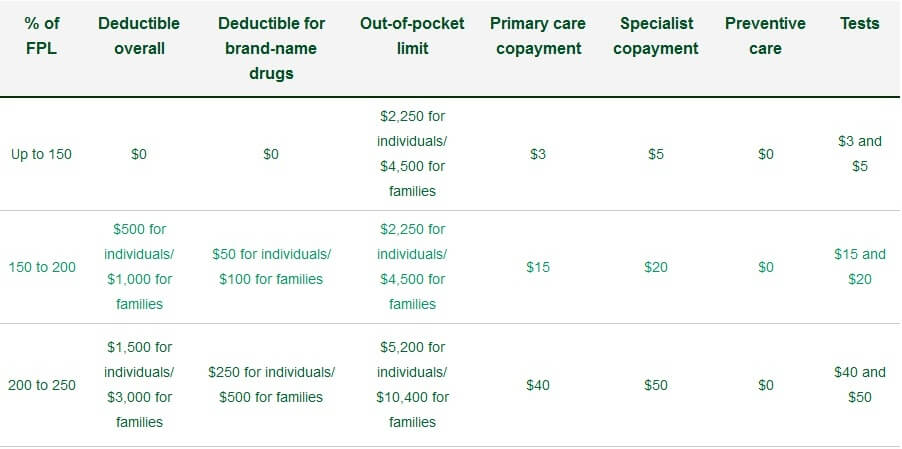How Premium Tax Credit Subsidies
Can Substantially Lower Your Monthly Premium

The Basics
Colorado households earning less than 400 percent of the federal poverty level (FPL) are eligible for federal assistance in paying for health insurance premiums for plans purchased on the Connect for Health Colorado insurance exchange.
As a certified agent on the Colorado exchange, your ColoHealth Personal Benefits Manager can use your estimated income to assist you in determining your eligibility for an advance premium tax credit—even if you wait until tax time to apply for your premium subsidy; he or she will also help you choose the most beneficial Affordable Care Act (ACA)-qualified plan for you.

2024 Federal Poverty Levels and Premium Subsidy Eligibility
As Outlined by the U.S. Department of Health and Human Services:
| Household Size | 100% | 138% Medicaid-Eligible | 400% Premium Subsidy-Eligible |
|---|---|---|---|
| 1 | $14,580 | $20,120 | $58,320 |
| 2 | $19,720 | $27,214 | $78,880 |
| 3 | $24,860 | $34,307 | $99,440 |
| 4 | $30,000 | $41,400 | $120,000 |
| 5 | $35,140 | $48,493 | $140,560 |
| 6 | $40,280 | $55,586 | $161,120 |
| 7 | $45,420 | $62,680 | $181,680 |
| 8 | $50,560 | $69,773 | $202,240 |
| 9 | $55,700 | $76,867 | $222,800 |
| 10 | $60,840 | $83,961 | $243,360 |
Note: For families of more than eight persons, add $4,540 for each additional person.
Federal poverty levels vary for Alaska and Hawaii and can be seen here.
What You Will Pay for Premiums Is Based on Your Income
Premiums are capped based on your income level as it compares to the federal poverty level:
| Household Income Range (expressed as % of FPL) | Required % of household income at start of range | Required % of household income at top of range |
|---|---|---|
| Less than 150% | 0% | 0% |
| 150% - Less than 200% | 0% | 2% |
| 200% - Less than 250% | 2% | 4% |
| 250% - Less than 300% | 4% | 6% |
| 300% - Less than 400% | 6% | 8.5% |
| 400% and higher | 8.5% | 8.5% |
Modified Adjusted Gross Income (MAGI) and Your Taxable Income
Your MAGI directly affects your taxable income and, as a result, the amount you pay for premiums and out-of-pocket expenses on an ACA-qualified health plan can be greatly reduced. You can significantly lower your taxable income when you contribute to a Health Savings Account (HSA) and reduce your health care costs in the process.
Marriage Rules and Tax Credits
If you are covered as an individually insured employee with a premium that is less than 9.5 percent of your income, it doesn’t mean that your family members aren’t eligible for tax credits. Depending on family size and income, children may be covered through Medicaid (the Children’s Health Insurance Program [CHIP]). The 9.5 percent formula doesn’t improve the high costs of family health care, but the IRS doesn’t recognize family premiums under the “adequate and affordable” rule.
Married couples who prefer to file taxes separately to lower their tax bills do not qualify for a health insurance premium subsidy. However, if a couple’s marital status changes between filing for a subsidy and receipt of the tax credit, they may be able to get reimbursed. Check with your ColoHealth Personal Benefits Manager when applying for tax credits on premiums.
How Cost-Sharing Tax Credits May Save You Even More
Cost-sharing tax credits are available for incomes below 250 percent of the FPL, and are only available on Silver plans. Cost-sharing tax credits lower the amount that you will have to pay in deductibles, copays, and maximum out-of-pocket limits. Note that these are simply examples of how cost-sharing may affect your coverage; you should consult your ColoHealth Personal Benefits Manager for specifics on how cost-sharing tax credits apply to the specific plan you are considering.
Note that these are simply examples of how cost-sharing may affect your coverage; you should consult your ColoHealth Personal Benefits Manager for specifics on how cost-sharing tax credits apply to the specific plan you are considering.
Deductibles can vary, and while out-of-pocket costs cannot exceed what is shown here, they may be lower depending on your plan. For example, not all plans require prescription copays.
Strategies to Spend Less and Save More
Premiums aside, there are other proactive ways to lower your out-of-pocket expenses for copays and deductibles. A Health Savings Account (HSA) can reduce your taxable income as it helps you to build an arsenal of health care dollars to use for a wide variety of qualified expenses.
You can use an HSA to reduce your taxable income enough to receive a better premium tax credit. HSA funds not used by the end of each year can be ‘rolled over’ from year to year and, ultimately, used at your discretion upon retirement.
If you do not qualify for a subsidy, you may want to consider joining a health sharing program instead of getting health insurance. Health sharing is a non-insurance option in which like-minded people join together to share medical expenses. Typically the monthly contribution is about half that of health insurance.
How to Apply on Connect for Health Colorado
ColoHealth Personal Benefits Managers are certified by the Connect for Health Colorado health insurance marketplace. Rather than dealing with a different exchange navigator each time you visit the exchange, you can take advantage of our independent, licensed insurance professionals by authorizing your Personal Benefits Manager on the Connect for Health Colorado website. You’ll have the same ColoHealth Personal Benefits Manager at your disposal before, during and after the enrollment process each year.
If you want to sign up through the exchange on your own, you still have the right to have us as your representative. This enables us to check into claims issues or billing problems, and to be your advocate should problems arise. Go to How to Apply for Coverage on the Connect for Health Colorado Marketplace for step-by-step instructions on how to sign up.
Simply choose ColoHealth as your authorized agent when creating your profile on the exchange. There’s never any charge for our services!
For assistance, call us at (800) 913-6381 or send an email to [email protected].
Get more information about health care reform on our Colorado Health Insurance FAQs page.
Health Insurance Instant Quote
HEALTH INSURANCE INFORMATION
- Plans approved and authorized under the Affordable Care Act
- Covers Pre-Existing conditions
- Low cost subsidized plans available to those earning
< 400% of the federal poverty level - Unlimited lifetime benefits
- Available during open enrollment (November 1 – January 15), or if you qualify for a Special Enrollment Period
Healthshare Instant Quote
HEALTH COST-SHARING INFORMATION
- Not health insurance, but a way for like-minded individuals to share medical expenses
- Waiting periods on pre-existing conditions
- May exclude sharing for certain conditions or activities
- Enroll any time
- Much lower monthly cost than unsubsidized health insurance
